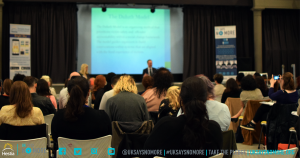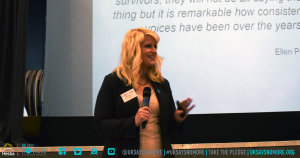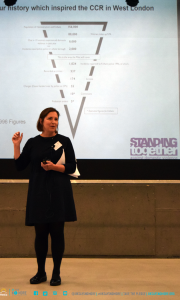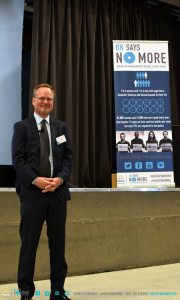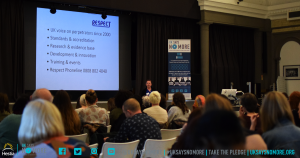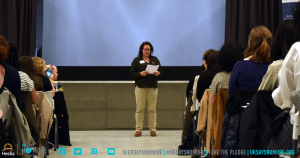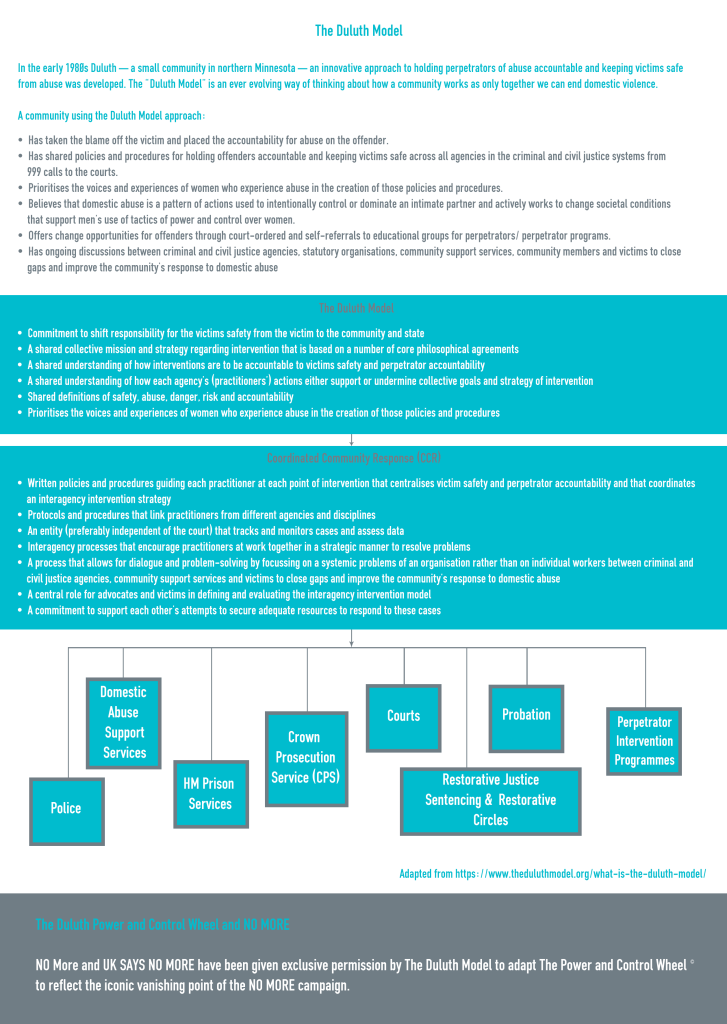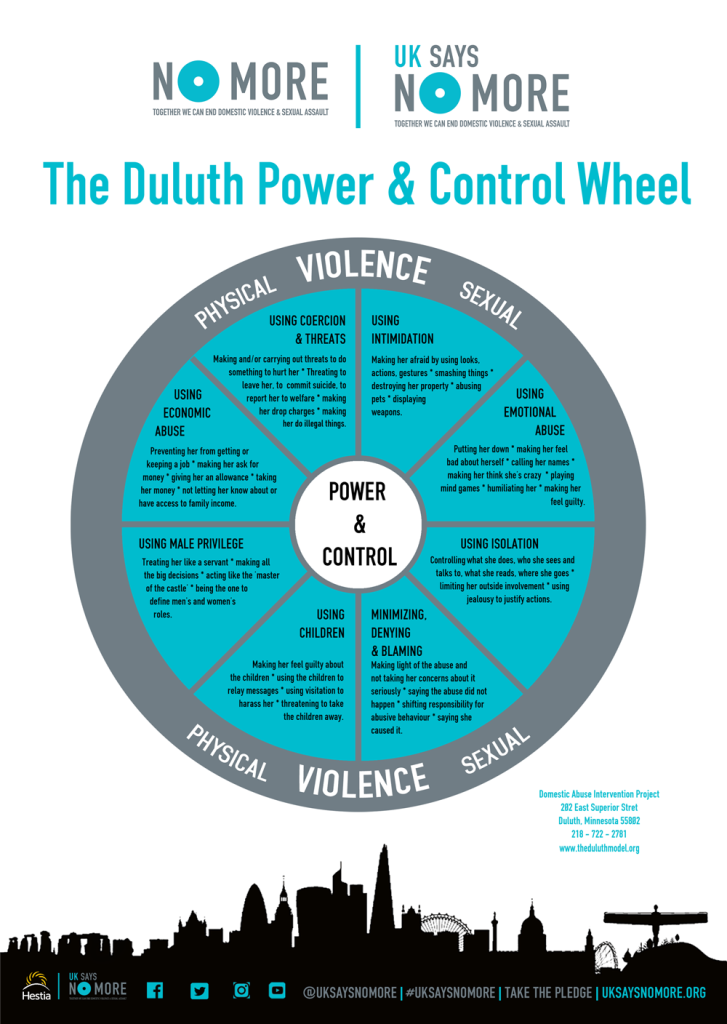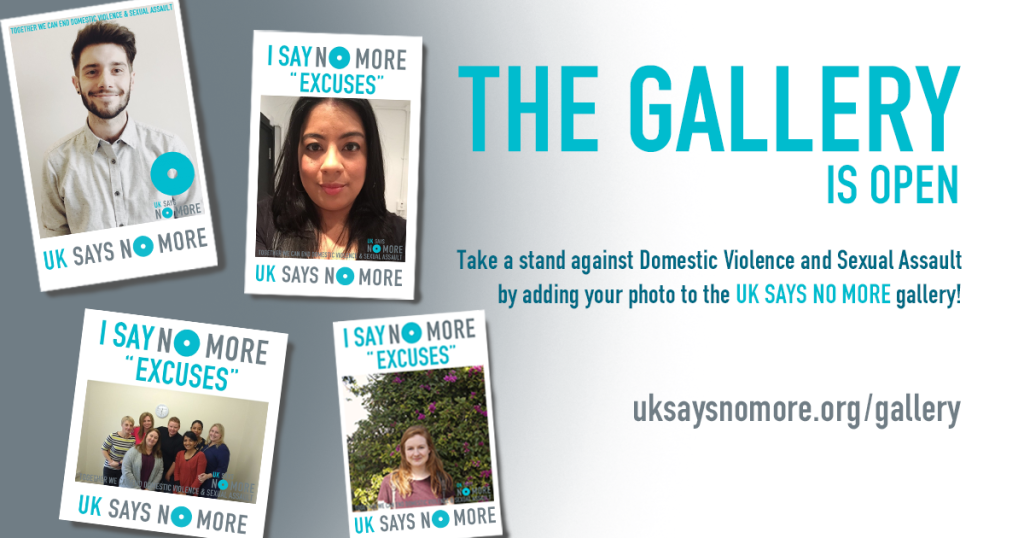On Tuesday 6th June, Hestia and London Metropolitan University hosted an event featuring two representatives from leading domestic abuse prevention organisations in the United States, looking at the lessons learned from Community Coordinated Response (CCR) and perpetrator programmes.
CCR to domestic abuse originated in the early 1980s in Duluth, Minnesota with the twin aims of centering victim safety and holding male perpetrators to account. In 2014, Domestic Abuse Intervention Programs (DAIP), the city of Duluth and St. Louis County were awarded the “Gold Award” from the World Future Council and Inter-Parliamentary Union for the creation of the concept of a CCR.
The Duluth Model has become a ‘world travelling concept’, applied and adapted across different cultural contexts. In the UK, it is claimed as the basis of many of the multi-agency approaches that support victims of domestic abuse.
View the slides
Click here to view the Duluth and Beyond conference PowerPoint slides.
Presenters
Melissa Scaia, MPA, Director of International Training at Global Rights for Women, Co-Founder of Domestic Violence Turning Points, and former executive director of Domestic Abuse Intervention Programmes, the “Duluth Model”.
Scott Miller, Coordinated Community Response (CCR) Organizer for Domestic Abuse Intervention Programs (DAIP) in Duluth, Minnesota and coordinator of the Men’s Non-Violence Program at DAIP.
During the day delegates also heard from Gayle Lowery-Jones – Regional Operations Director at Hestia, Professor Liz Kelly – Professor at London Metropolitan University, Nicole Jacobs – CEO at Standing Together, and Jo Todd – CEO at Respect.
Session 1: The Coordinated Community Response
DAIP was able to establish through their CCR model that when the community puts their efforts together to protect women and hold perpetrators accountable they were more likely to be successful. Coordination meant that the process was not only more effective but also faster. A critical step for joint working would be a common understanding of domestic violence which was put forward in the Power and Control wheel model.
Session 2: Working with perpetrators – the Duluth Model
Men’s nonviolence courses have become one of the most known elements of the Duluth Model, although the first groups were in Boston, with a methodology which requires men to explore the core of their actions and beliefs. This approach has inspired violence prevention work with men across the globe.
Power and Control Wheel
Hestia also unveiled the ‘NO MORE’ branded Power and Control Wheel. The Power and Control Wheel, developed by DAIP, helps us to understand the ways in which perpetrators exert power and control to manipulate a relationship.
You can view and print a PDF version of the NO MORE branded Power and Control Wheel.
Say NO MORE to domestic violence and sexual assault
Sign up to the UK SAYS NO MORE newsletter by taking the pledge or adding your photo to the Gallery and signing up to receive updates.
We will let you know about future events, training and awareness-raising opportunities for you to get involved in as an individual or organisation.
Interested in becoming a partner of UK SAYS NO MORE?
We’d love to hear from you, please get in touch with Lyndsey Dearlove, Violence Against Women and Girls (VAWG) Partnership Manager.
You can contact Lyndsey by email at [email protected] or by phone at 020 7378 3170.
[maxbutton id=”12″ ] [maxbutton id=”6″ ] [maxbutton id=”3″ ]
